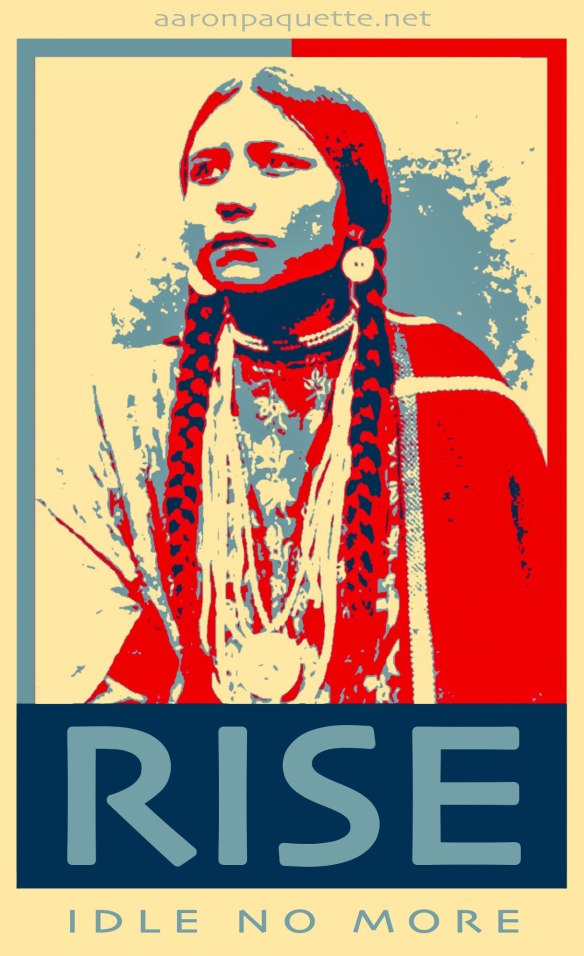First in a series of posts.
What is THE most important issue of our times? For me, there is no doubt. The treaty obligations of settler Canadians just have to come first and they have to come first now. Those of us who are not indigenous to this country have ignored those obligations since we entered into them. This has resulted in First Nations and Inuit people becoming the most harshly treated people in this country, across the board, on all indicators. Their access to adequate housing on reserves is appallingly inadequate and movement into urban areas often leads to urban poverty – mental illness, addiction, prostitution and subjection to state violence and street violence of all kinds. Both on reserves and in urban areas, far too many are without access to decent medical care, standard education options and community supports. The state is more likely to “help” First Nations people by stealing their children, as it did in the past. First Nations land is robbed and stripped of resources and polluted while communities are poisoned. Yes, we should worry that the poisons and pollutants run downstream. Why wouldn’t we worry first that they attack the land and people to whom we have legal and ethical obligations?
My life’s work outside my family has been a commitment to the liberation of women. In that regard, First Nations women are the most legally subjugated people in Canada, subject to the most violence, the fastest growing rates of incarceration in the country and systematic, historical and ongoing action to relieve them of those most precious to them … their children.
I’ve always believed in grassroots action, even though I was an academic. I’ve always believed in working from the bottom up because if we resolve the problems of those who suffer the worst exploitation, oppression and repression, we cannot but resolve those problems for all. Trickle UP actually works. It only makes sense. That, I suppose, is the more selfish reason for supporting Idle No More, Sisters In Spirit, the Aboriginal Women’s Action Network, Chief Theresa Spence, the National Aboriginal Women’s Association and many other FN organizational and community actions. For my own children and grandchildren, and yours. I think that’s ok. Doing the right thing has those kinds of benefits.
We must also listen to those many Indigenous people who live on unceded land in Canada – those with whom the state has never negotiated treaties and whose attempts to claim their land through legal processes are backed up in the courts and dealt with unjustly.
As a white settler woman, I still have a lot to learn. I’ve made mistakes in the ways I’ve tried to be an ally and a supporter and I’m sure to make them again. But as a friend said last night, “Better to risk a flawed activism than to maintain a perfect inactivism.” I’m doing my best and that’s what we all have to do. If we want a future in this country, in relationship with those nations who lived here first, on Turtle Island, we have to do it now. That’s what I think.


